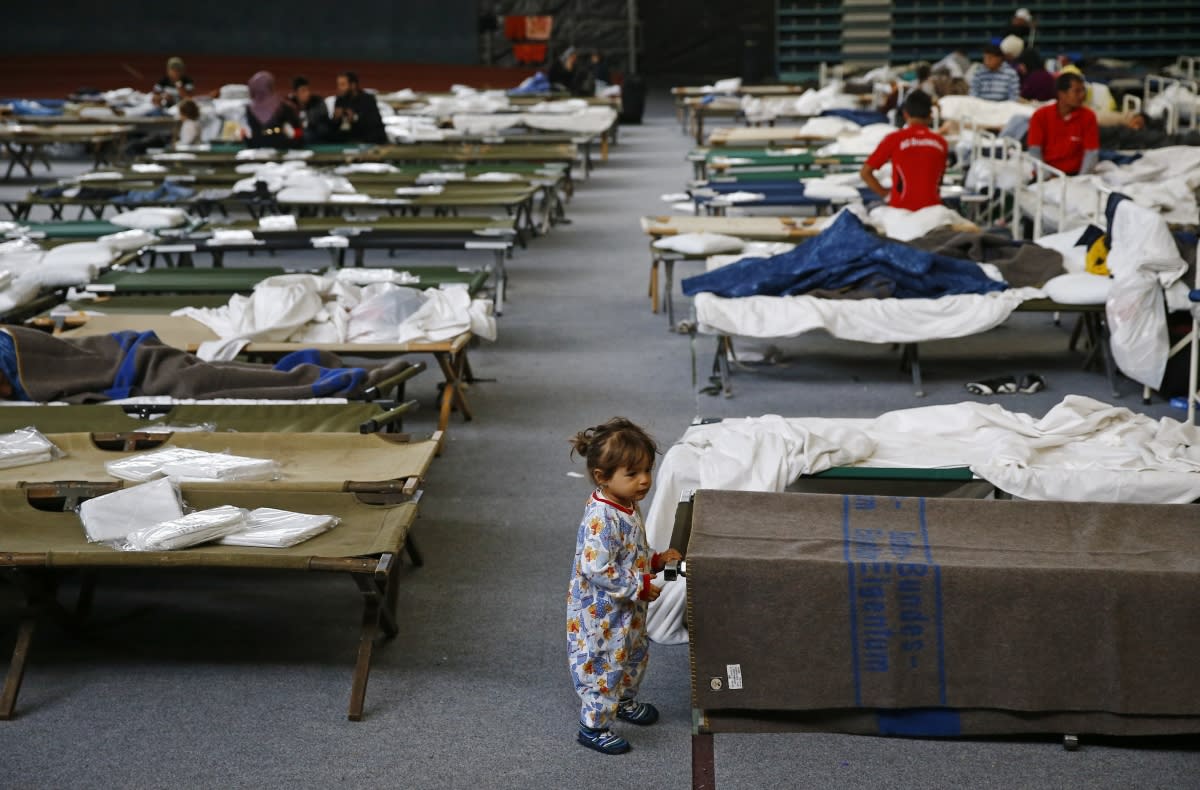Refugees Will Cost Germany At Least Ten Billion Euros, Says Think Tank

A leading German think tank has estimated that a 10 billion-euro bill for the large numbers of refugees and migrants arriving in the country is "conservative," and may be higher due to the new arrivals being "poorly prepared" for the German labor market.
The Ifo Institute, a Munich-based not-for-profit economic research group, says that the figure could in fact be higher as it does not take into account the cost of family members joining the refugees or any educational measures. The organisation says the original 10 billion-euro ($11.1 billion) sum is based on local government costs, that currently stand at on average 12,000 euros ($13,400) per person per year, to cover accommodation, meals, pocket money, health costs and administrative expenses.
Germany announced in August that it expects Deutsche Welle, a refugee summit held by the German parliament in July budgeted 5.6 billion euros ($6.3 billion) for an expected 450,000 asylum applications this year, before the estimated number of arrivals increased.
In a new report, the Ifo Institute warns that a lack of educational opportunities in the crisis-afflicted states of Syria, Iraq, Nigeria and Afghanistan could prevent refugees from integrating successfully into the workforce. It said that the illiteracy rate among the 14-24-year-old age group is 4 percent, 18 percent, 34 percent and 53 percent respectively in the aforementioned countries.
The report says that that in the most developed of these countries—Syria—only 6 percent of the population has a university degree. "Although refugees tend to be male and younger than the demographic average age, one thing is still clear: they are poorly prepared for the German labor market," a statement accompanying the report says. The institute says that in addition to language courses, Germany will also need to invest in training, which will generate extra costs. The government has already said that only one in every 10 refugees is immediately employable and that the rest will require social support, possibly for years.
To avoid the refugee crisis becoming a long-term financial burden for German taxpayers, the institute says that refugees must find employment as fast as possible, so that they can meet their own living costs. "There are fears, however, that many of them will not be able to find a job with a minimum wage of 8.5 euros ($9.5) [per hour] in place because their productivity is just too low," the report states, citing a lack of both formal qualifications and language skills. "It would therefore be a good idea to lower the minimum wage across the board to prevent unemployment from rising," the report concludes.
Professor Panu Poutvaara of the University of Munich, who is director of migration research at the Ifo Institute, told Newsweek, "There are two ways of reading the current situation. If the refugees are not integrated then the costs could be significant. What is worrying is that many of the refugees have very low levels of education and therefore may not be able to work in some labor markets.
"At the same time, we don't know much about the current inflow of migrants. One could expect that there could be many educated people, and if they can be integrated then the effects would be positive. But we also raise the concern that the current minimum wage may prevent this more positive outcome.
"It's clear Germany needs more immigrants, and if they are integrated the overall effects are positive," Poutvaara concludes.
German business leaders have spoken with cautious enthusiasm about the new arrivals, arguing that Germany's ageing population and low birth rates means that immigration could be vital for the economy. The president of the Association of German Chambers of Industry and Commerce, Dr. Eric Schweitzer, told Newsweek last month that the potential of refugees needs "to be exploited to a much larger extent," arguing that many companies are "desperate to find trainees and qualified staff", while some refugees have qualifications that are "dearly needed."
Related Articles

 Yahoo News
Yahoo News 

